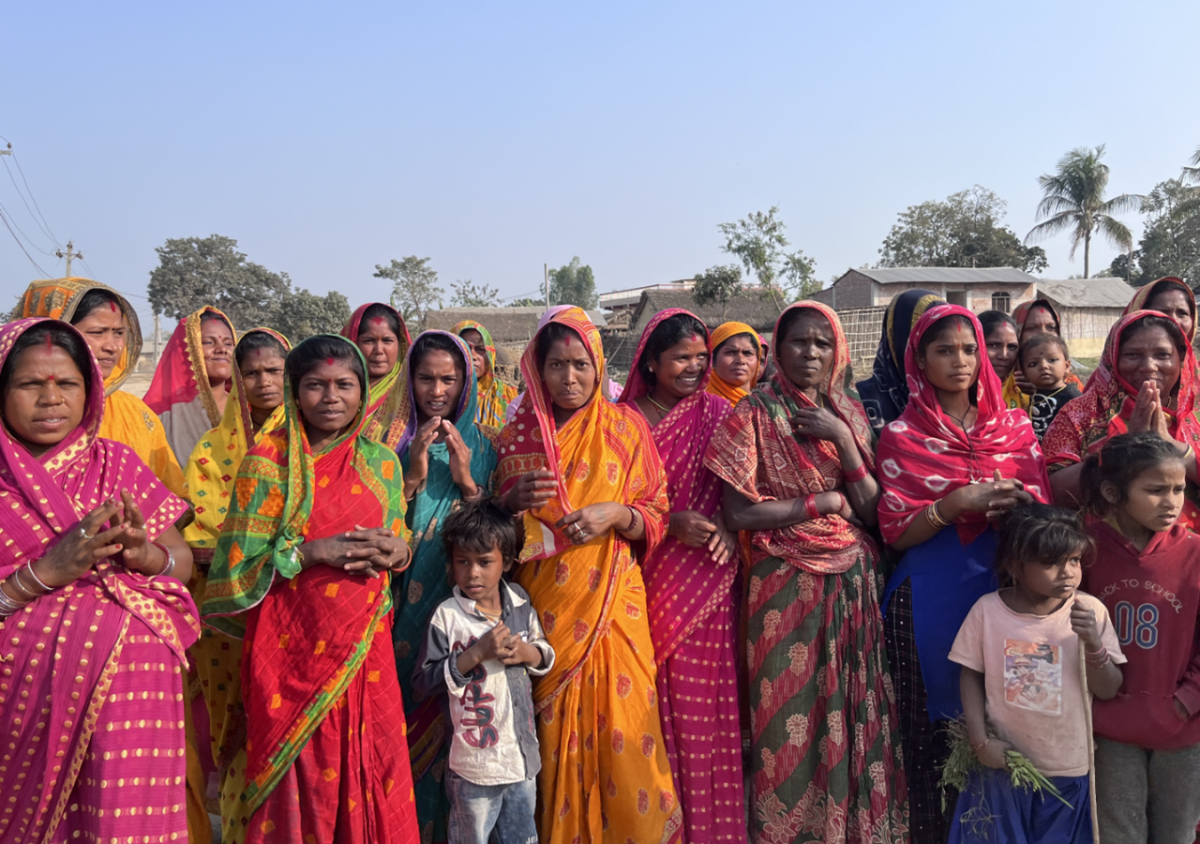Why Families in Nepal Eat More Vegetables

“As Dalit landless people, we used to survive primarily on rice, and some days we had nothing to eat. Our children’s stomachs were never full. We now have land to grow vegetables for our family,” says Rubi Sadhya, a member of the Dina Bhadri Women Farmers Group, in Siraha District, Nepal.
She is a part of a groundbreaking climate-resilient leasehold farming approach in Nepal that is not just about farming; it is a journey for the landless towards a more nourished and sustainable life. While there is still a long way ahead to enjoy a balanced diet every day, the strides families have made are unprecedented.
The contract farming model allows and supports landless farmers to lease cultivable land for five to ten years. That lets people create livelihoods even when land would normally be out of reach. The National Farmers’ Groups Federation (NFGF) initiated this climate-resilient leasehold farming practice in the fiscal year 2018/19 as a pilot in Bhagwanpur Municipality. Local governments paid the cash cost to pilot the model ($378 USD, or 50,000 NPR). CARE and NFGF provided technical support, production inputs, and technology are from CARE and NFGF. The cost is likely to go down once it is institutionalized and scaled out widely.
This approach succeeds because it brings together several different stakeholders for the same goal. CARE and its partner NFGF play a crucial role in overseeing the entire process. They not only provide the initial production inputs and technical support but also offer incubation assistance. Meanwhile, the local government takes care of paying the lease amount. After farmers complete their production training, they begin independently leasing additional land.
It’s already scaling women and governments are already building on the model, reaching nearly 20 times the number of people the project started with. 10 more local governments are starting to roll out the approach.
What is changing?
Fostering collective responsibility: Farmers in this model embrace a strong sense of collective responsibility, ensuring adherence to the obligations outlined in the land lease agreements signed by their group leader.
Women become bread winners: 40 women are now growing food on 2.6 hectares of lands that would otherwise lie fallow. The land lets them grow food even though their husbands have migrated to get jobs abroad.
Self-esteem goes up: Women increase their confidence to engage with local government to claim their rights. The model creates opportunities for individual households within the group to own a share of the land, encouraging them to increase production and enhance individual earnings.
Land gets used effectively: The model ensures that land that no one is using grows food, creates jobs, and improves the livelihoods of the most marginalized land-poor and landless communities.
Women are already scaling the approach: These women have not only provided nutrition, but they are also confident they can earn enough to expanding their leased lands. That will reduce how much they depend on external subsidies in the future, making them self-reliant.
Governments are scaling up nearly 20 times the reach: Laxmipur Patari Rural Municipality has already embraced this model as part of its policy and program, extending its reach from ward 1 to ward 3 and 5. In total 732 landless families from 31 communities of 10 local governments have developed sustained food security and livelihood source as of now. The local governments have included contract farming in their policy and program to reduce poverty among landless and climate-vulnerable communities.
How did we get here?
Partnership with local stakeholders - CARE Nepal in partnership with National Farmers Group Federation (NFGF) and Local Initiatives for Biodiversity Research and Development (LIBIRD) identified the food insecure, most marginalized, and landless Musahar community as the impact group and brought concept of leasehold farming targeting Musahar, the landless agricultural tenants. As contract farming was an ‘untrodden turf,’ CARE Nepal and its partners decided to pilot this practice in Siraha district.
Engagement of women farmers - NFGF supported formation of 40-members Dalit Women Farmers Group and engaged in the scheme enhancing their livelihoods significantly. The female farmers should specially be credited for bravely taking on the load of cultivating the land after receiving several demonstration trainings.
Effective Advocacy and Lobbying - CARE partners successfully advocated, more than a decade ago, for the introduction of the Land Lease Working Guideline (2014/2015). This guideline ensures that government and private lands are leased to farmers without land. This helped in initiating the pilot process for leasehold farming. Beyond just policy impact, this approach is seen as a model for making the best use of land, creating jobs, and fostering the country's long-term socio-economic growth.
What next?
The impact of this transformative farming model continues to ripple through communities, with Laxmipur Patari Rural Municipality leading the charge. Recognizing its success, the municipality has officially incorporated this model into its policy and program, expanding its coverage from Ward No. 1 to include Wards No. 3 and 5. This extension marks a significant milestone in the widespread adoption of a sustainable and empowering approach to agriculture.
Moreover, the positive momentum does not stop there –10 different local governments including Belaka Municipality in the Udayapur district have also eagerly endorsed it. The endorsement from multiple municipalities underscores the replicability and adaptability of the model in diverse contexts.
The strength of this model is that government policy and guidelines are in place on leasehold farming which explicitly provisions to utilize private and public land for leasing and farming. Additionally sufficient fallow land (both public and private is available at local level)

